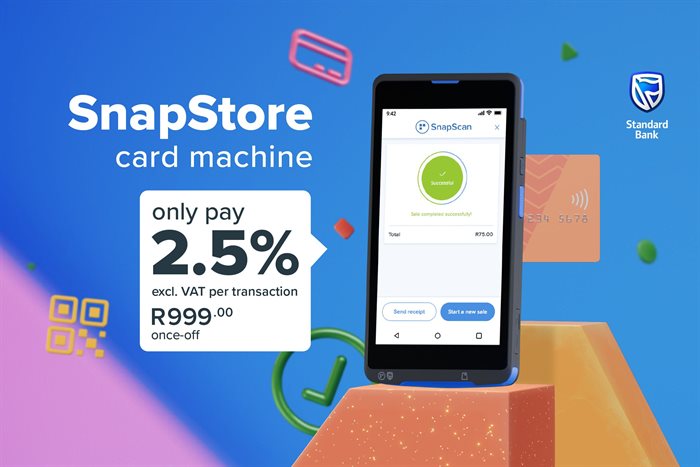How SnapScan Seeks To Help Small Businesses Thrive

How SnapScan Seeks To Help Small Businesses Thrive. While business costs are rising sharply, local fintech SnapScan is throwing small business owners a lifeline with their Snappy 2.5% offer.
Increased fuel costs, interest rate hikes, and continuous loadshedding; there’s no doubt that small business owners are feeling the pinch. While costs associated with doing business are increasing, SnapScan is bucking the trend by reducing the transaction fees for businesses that accept payments via their new SnapStore card machine.
Backed by Standard Bank, the SnapStore card machine is an all-in-one device that allows businesses to make sales and manage their transactions on the go. This sleek device functions like a smartphone, processing payments in seconds whether it’s tap, swipe, insert or scan. With the Snappy 2.5% offer, SnapScan not only makes it easier for business owners to accept payments, they’ve made the SnapStore card machine more accessible to business owners struggling to keep up with rising costs.
When businesses sign up for the snappy new card machine, they’ll immediately get access to the best possible transaction rate: 2.5% excl. Vat. The 2.5% excl. VAT transaction fee is a fixed rate that small businesses will benefit from as long as they continue processing transactions via the SnapStore card machine. Businesses will receive more of their hard-earned cash by paying less for their transaction fees. They can use the extra funds to pay off some expenses, buy additional inventory or invest in new tools to accelerate their growth.
Aside from the once-off cost of the SnapStore card machine, the only fee business’ pay is the small transaction rate of 2.5% excl. VAT. While some payment providers offer transaction fees below 2.5%, these are often structured around device rental, monthly account fees, loans with high interest rates, or whether businesses earn a specific monthly turnover. SnapScan’s fixed 2.5% excl. VAT is a transparent fee model to simplify the calculation of a business’ total transaction costs.




